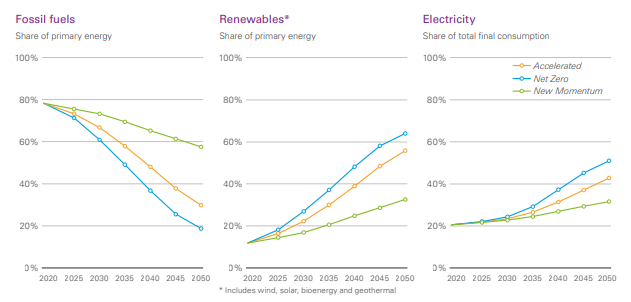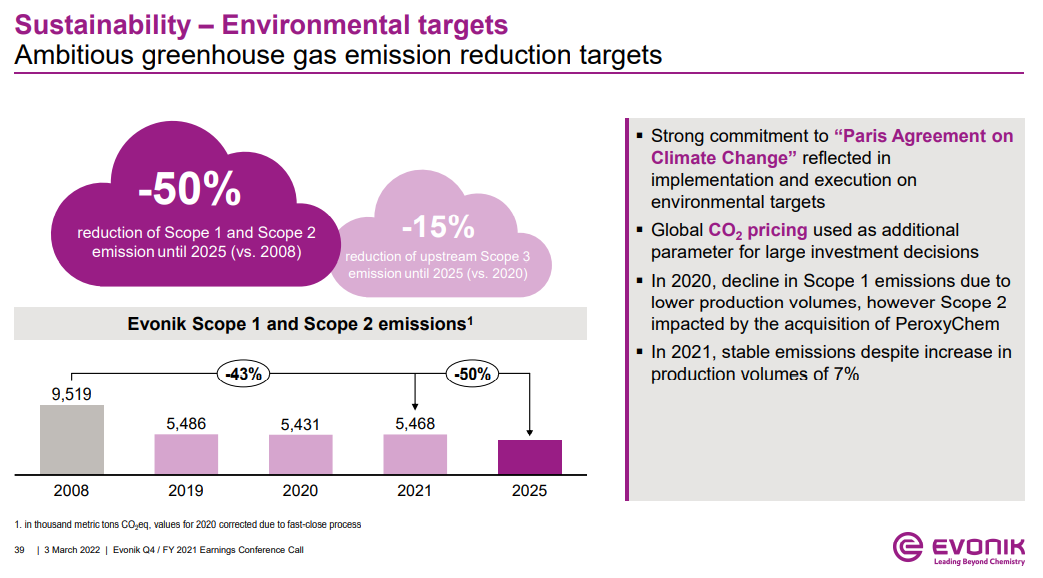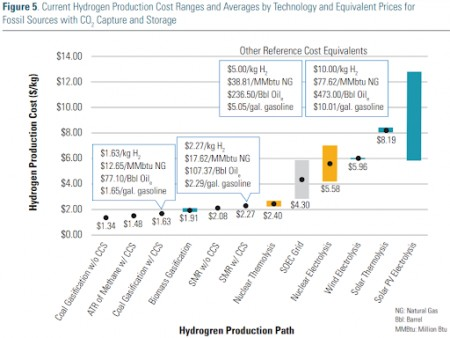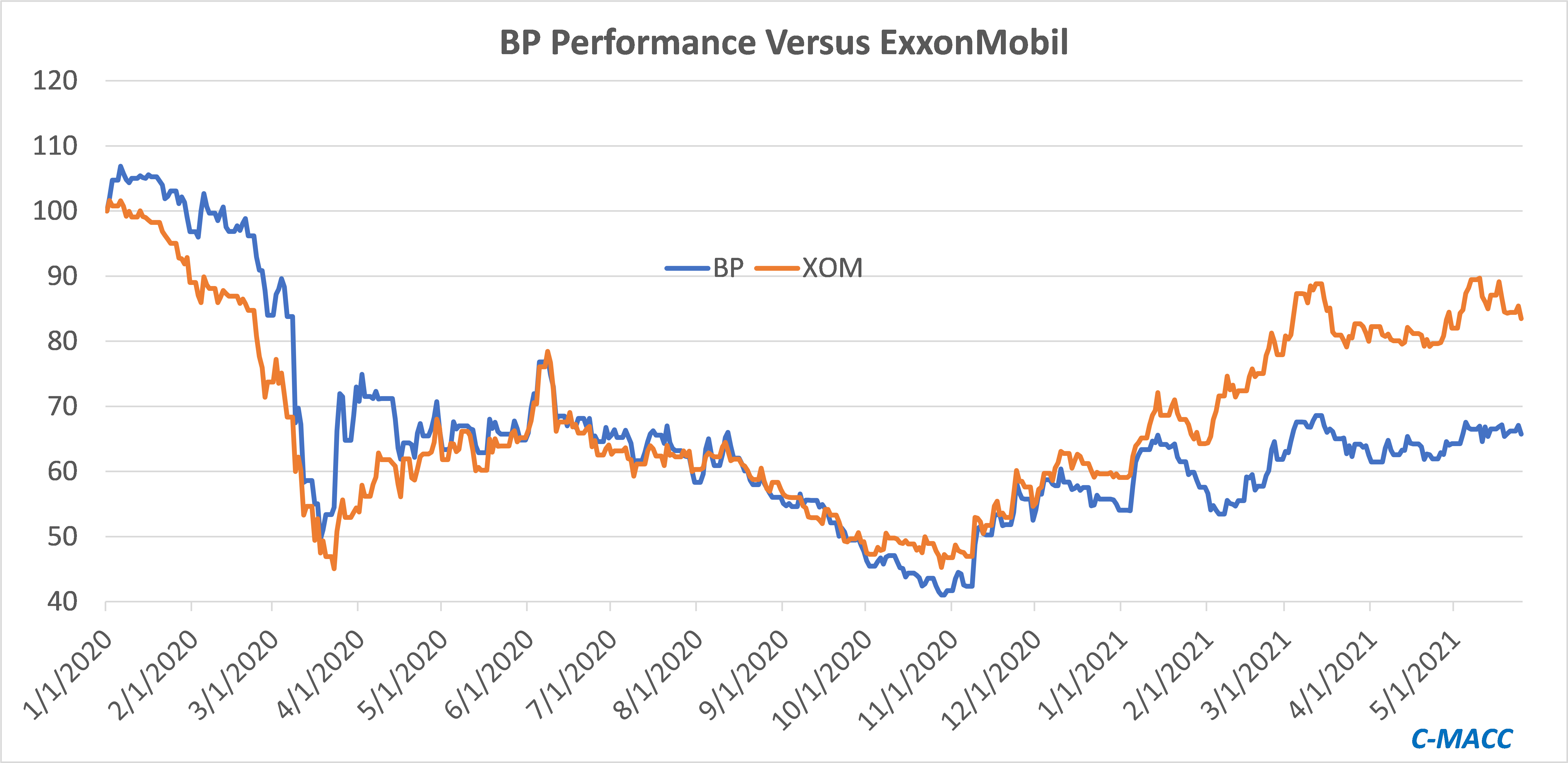The annual review of World energy from bp shows a stark reversal of the company’s position only a short while ago. When the pandemic hit, bp went on record suggesting that we may have seen peak oil demand in 2019. It was an interesting theory and one that we discussed at the time, but it underestimated the impact that aggressive COVID-related stimulus would have on consumers globally and we suspect that bp, like many others, overestimated the rate at which renewables could be added. Now the company is exploring a very different scenario, one in which the current momentum in the energy market continues and the rate of renewable additions slows, either because of more limited capital or because of material constraints – or a combination of both.
bp Analysis Shows Steep Challenges Of Energy Transition
Mar 15, 2022 11:36:51 AM / by Graham Copley posted in ESG, Climate Change, Sustainability, Energy, Emission Goals, Net-Zero, bp, renewable energy, renewables, energy transition
Carbon Pricing Will Be Critical For Investment Decisions, Lack of Clarity Will Cause Delays
Mar 3, 2022 1:35:16 PM / by Graham Copley posted in ESG, Hydrogen, Climate Change, Sustainability, CCS, Blue Hydrogen, CO2, Carbon Price, bp, carbon dioxide, carbon abatement, manufacturing, carbon pricing, Evonik, cost curves
The Evonik discussion around CO2 prices is both relevant and important as CO2 values will be a critical component of investment decisions for many industries going forward. Those waiting for explicit guidance on CO2 prices are likely to be disappointed as we are not seeing much global coordination today and as we discussed yesterday, the European market, which had been the better indicator in our view over the last 18 months, has collapsed in the wake of the Russia/Ukraine conflict as some countries ask for it be suspended, while speculators are assuming that lower gas supplies into Europe will lead to lower emissions and less demand for credits. One of the options here is to take the bp approach and assume a carbon price in investment decisions. Early last year, bp indicated that it would fix on a carbon price of $100 per ton in its longer-term planning. We believe that this is a ballpark steady-state for CO2 pricing but that traded prices could be quite volatile around that level, depending on the mechanisms used. But even if we have a consistent carbon price, we will see significant changes in industry costs and competitive cost curves based on the various costs of carbon abatement. We have written in the past that we could see huge benefits to the US manufacturing base because of the combination of relatively low-cost hydrocarbons and relatively low-cost CCS opportunities. By contrast, we see costs rising steeply in places like central West Europe, where the local CCS opportunity is off the table. Even if Europe can produce cost-effective blue hydrogen on the coast, getting it to central Europe will be an issue. The landscape is less clear in Asia, but we expect to see some competitive edge for countries with low-cost CCS options – Malaysia, Indonesia, Thailand, and parts of China. See more in today's daily.
Green Hydrogen: Not So Good If Power Prices Do Not Come Down
Sep 3, 2021 1:14:52 PM / by Graham Copley posted in ESG, Hydrogen, Climate Change, Methanol, CCS, CO2, Renewable Power, Ammonia, bp, feedstock, carbon dioxide, solar, wind, electrolysis
Last week, and in our dedicated ESG and climate report this week, we talked about the challenges of shipping hydrogen, and the linked bp project for Western Australia will have the same problem to solve – choosing ammonia according to the announcement over the very inefficient toluene/cyclohexane option we discussed last week. The appeal of Western Australia is the unpopulated available land that has little alternative use and sees abundant sunshine. The bp project assumes that the facility can buy attractively priced renewable power from third parties, but the company must have a specific power project in mind for the bulk of the electricity needed. The stumbling block here will likely be when the power project(s) bid out the solar module contract, find out that the suppliers are sold out and are asking higher prices to cover reinvestment and higher material prices, and then have to go back to bp with a much higher than expected cost of power. The advantage of solar and wind projects is that inflation only impacts upfront capital costs, which can be amortized over the life of the project – feedstocks are free! That said, most of the announced projects have declining capital costs per megawatt in their planning assumptions today.
Bold Climate Initiatives Will Need Equally Bold Incentives & Some Economic Logic
Jun 29, 2021 12:59:46 PM / by Graham Copley posted in ESG, Hydrogen, CCS, Blue Hydrogen, CO2, Renewable Power, Net-Zero, fossil fuel, bp, natural gas, EV
There is an unusual number of interesting topics in today's report, versus the normal mix of small pet projects or broad and unsubstantiated announcements. The EU 2030 targets are worth highlighting and they are in part connected to the central theme of the ESG and climate report that we will publish tomorrow. The European targets are not coordinated with what is happening in the rest of the World and while we admire the ambition, we suspect that the goal is not achievable, simply because the challenges of replacing the power and fossil fuel associated with the emissions to be avoided are too great, given the timeline. The level of additional renewable power generation, EV adoption, and hydrogen production needed to offset so much CO2 are extremely high, and it will be hard to get substantially more CCS offset than already announced because of land rights issues in Europe and logistics. To get the power, EV, and hydrogen, the EU will be competing with other regions that have their own targets and we see scare resources bidding up the price of power, impacting all of the elements, power itself, the cost of running EVs (see the chart below – the EV story does not work of you are using coal as a marginal source of power), and the cost of hydrogen.
Will ExxonMobil Activists Change Anything?
May 26, 2021 1:24:39 PM / by Graham Copley posted in ESG, Carbon Capture, Energy, ESG Investing, ExxonMobil, carbon footprint, ESG Fund, bp
With little chemical corporate news of note, we will focus on ExxonMobil today. The shareholder activism may be high but it is unclear to us what the activists hope to achieve, even if they are successful at the annual meeting. The ESG investment group has largely given up on energy and even if ExxonMobil changes strategy and agrees to spend more on carbon abatement it is unlikely that new investors will show up, especially if the new strategy is more costly. Despite all of its directional change and rhetoric, bp has underperformed ExxonMobil since Mr. Looney took the helm in early 2020. If ExxonMobil were to follow the bp playbook, it is not clear that shareholders would benefit.






